2018-2019 Distinguished Speaker Series on Energy, Climate Disruption and Sustainable Development
In 2018-19, Harrisburg University of Science and Technology hosted a series of nine public lectures featuring thought leaders on a variety of topics related to energy, climate disruption, and sustainable development. The Distinguished Speaker Series on Energy, Climate Disruption and Sustainable Development was organized by HU’s Center for Environment, Energy, and Economy (E3).
The lectures and distinguished speakers are described below.
March 2, 2018 – The Fracking Debate
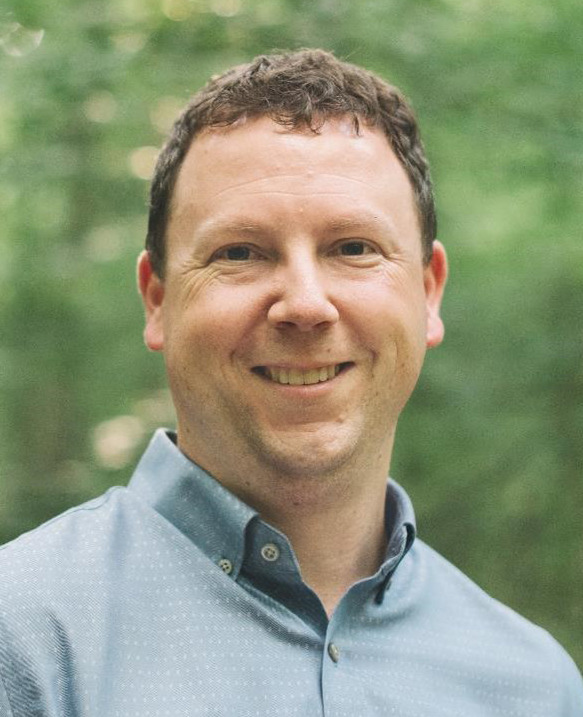
Fracking expert and author Daniel Raimi outlined the costs and benefits of the fracking industry boom in Pennsylvania and other shale-rich states The discussion was part of a tour in support of Raimi’s book, “The Fracking Debate,” a synthesis of scientific research and stories Raimi compiled while studying the nation’s growing oil and gas production industry.
From 2013 to 2016, Raimi traveled to every major oil and gas producing region across the U.S. to investigate the local impacts of increased domestic oil and gas production. Along the way, he met hundreds of people and gathered dozens of stories from the oilfield,” according to “The Fracking Debate” website (www.thefrackingdebate.com).
“The Fracking Debate” combines these stories with an in-depth look at the most commonly asked questions related to fracking and oil and gas development more broadly. The book features answers for anyone who is interested in the big questions pertaining to the shale revolution.
Raimi is a senior research associate at Resources for the Future, who also teaches energy policy at the Gerald R. Ford School of Public Policy at the University of Michigan. He also is a faculty affiliate with the University of Michigan Energy Institute.

Brown explained six things that citizens around the world urgently need to understand about climate change in light of the most recent climate change science. They are:
- The enormous magnitude of GHG emissions reductions needed to prevent catastrophic warming.
- The speed of GHG emissions reductions needed to prevent catastrophic warming.
- No nation may either legally or morally use national self-interest alone as justification for their failure to fully meet their obligation under the UNFCCC.
- No nation may either legally or morally use scientific uncertainty as justification for their failure to fully meet their obligations under the UNFCCC.
- Developed countries must legally, morally, and practically more aggressively reduce their GHG emissions than developing countries
- Developed countries must legally, morally, and practically help finance mitigation and adaptation programs in poor developing countries.
The need for broad understanding among civil society of these issues follows from several recent scientific reports on climate change. For instance, on Oct. 8, 2018, the Intergovernmental Panel on Climate Change (IPCC) issued a Special Report on limiting global warming to 1.5 degrees C above pre-industrial temperatures. This landmark report, along with several additional recent scientific studies published during the last few months, including a paper published by the Proceedings of the US National Academy of Sciences on July 21, 2018, Trajectories of the Earth System in the Anthropocene by Steffen et.al., and a paper published in mid-August in Nature Communications by Anthony et. al., 21st-Century Modeled Permafrost Carbon Emissions Accelerated by Abrupt Thaw Beneath, lead to the conclusion that the international community is facing an urgent existential crisis that threatens life on Earth.
Donald A. Brown is Scholar in Residence and Professor for Sustainability Ethics and Law at Widener University Law School, where he teaches International Environmental Law, Human Rights Law, and Climate Change Law. In 2013, he was a visiting Professor at Nagoya University Law School in Nagoya, Japan, where he taught human rights law.
In 2014, he was a visiting lecturer at Griffith University in Brisbane, Australia, where he lectured on climate change issues. He also is a contributing author to the “Intergovernmental Panel on Climate Change (IPCC), 5th Assessment Report.” Previously, he was Associate Professor of Environmental Ethics, Science, and Law at the Pennsylvania State University. Prior to that, he was an environmental lawyer for the states of Pennsylvania and New Jersey and Program Manager for UN Organizations at the US Environmental Protection Agency’s Office of International Environmental Policy where he represented US EPA negotiating sustainability issues at the UN including climate change, international water issues, biodiversity, and Agenda 21. His newest book, published in 2012 by Rutledge, is titled: Navigating the Perfect Moral Storm, Climate Ethics. He has written over 180 books, book chapters, and articles on environmental and sustainability ethics and law. He manages an award-winning web site, EthicsandClimate.org, which examines ethical issues that arise in climate change policy formation. He holds a B.S in Commerce and Engineering Sciences from Drexel University, a J.D. from Seton Hall University School of Law, and an M.A in Liberal Studies, majoring in philosophy and art from the New School University where he also was in the Ph.D. Program in philosophy.
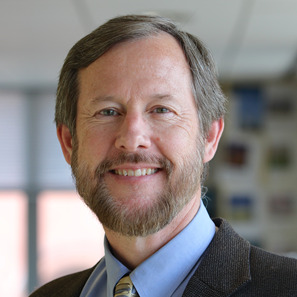
This briefing explored how assumptions regarding the availability, performance, and integration of various energy technologies drive the climate and economic implications of contrasting pathways to the “deep decarbonization” of the U.S. economy. Implications for energy policy and R&D portfolios were also explored.
Dr. Karl Hausker is a Senior Fellow in WRI’s Climate Program. He leads analysis and modeling of climate mitigation, electricity market design, and the social cost of carbon. He led the Risky Business study of clean energy scenarios for the U.S. and lectures widely on deep decarbonization. He is also a Senior Fellow at the Kleinman Center for Energy Policy, University of Pennsylvania. He has worked for three decades in the fields of climate change, energy, and environment in a career that has spanned legislative and executive branches, research institutions, NGOs, and consulting. He has led climate policy analysis and modeling projects for USAID, USEPA, the Regional Greenhouse Gas Initiative, the Western Climate Initiative, and the California Air Resources Board. Much of his work has focused on the electricity and transportation sectors, and on low carbon, climate resilient development strategies.
From 2007-2013, Karl was a Vice President at ICF International. He previously served as Deputy Director at the Center for Climate Strategies and as a Principal with Hagler Bailly. Karl lived in India all of 1999 as a Visiting Fellow at TERI. His experience also includes: serving President Clinton as Deputy Assistant Administrator in EPA’s Policy Office where he represented EPA in interagency climate policy development and at COP-1; and serving as the Chief Economist for the U.S. Senate Committee on Energy and Natural Resources, where he worked on a diverse set of issues including electricity restructuring, CAFE standards, alternative fuels, western water policy, nuclear power, and energy security.
Karl holds an M.P.P and Ph.D. in Public Policy from University of California, Berkeley, and received his Bachelor’s degree in Economics from Cornell University.
Karl holds an M.P.P and Ph.D. in Public Policy from University of California, Berkeley, and received his Bachelor’s degree in Economics from Cornell University.
March 15, 2019 – Legal Pathways to Zero Greenhouse Gas Emissions
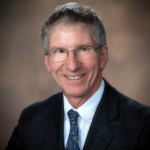
Scientific reports on the need to act on climate change are becoming increasingly urgent. But what do we do to reduce greenhouse gas emissions? This presentation discussed the findings outlined in a new book that describes and analyzes more than 1,000 legal tools for reducing U.S. greenhouse gas emissions to zero, or nearly zero, by mid-century. The book, Legal Pathways to Deep Decarbonization in the United States (Michael B. Gerrard & John C. Dernbach, editors, Environmental Law Institute Press) was released in March 2018. Federal, state, and local governments, as well as the private sector, have many more choices than they may have known. The book provides tools for policy makers, lawyers, and the public to address what is easily one of the most challenging problems of our time.
John C. Dernbach is Commonwealth Professor of Environmental Law and Sustainability at Widener University Commonwealth Law School in Harrisburg, Pennsylvania. He also is Director of the school’s Environmental Law and Sustainability Center. Professor Dernbach has written on sustainable development, climate change, and other topics in more than 50 articles for law reviews and peer-reviewed journals, and has authored, co-authored, or contributed chapters to more than 20 books.
Professor Dernbach coauthored a successful amicus brief to the U.S. Supreme Court on behalf of 18 prominent climate scientists in Massachusetts v. Environmental Protection Agency. His scholarship and advocacy helped persuade the Pennsylvania Supreme Court in landmark decisions in 2013 and 2017 to reinvigorate the Environmental Rights Amendment to the state constitution. He was a member of the National Research Council Committee that, in Sustainability and the U.S. Environmental Protection Agency (2011), made recommendations on how to institutionalize sustainability at EPA. Before taking his teaching position at Widener Commonwealth, Professor Dernbach worked in a variety of positions at the Pennsylvania Department of Environmental Protection, and served most recently as that agency’s policy director. He is also the co-author of a widely-used and influential legal writing text, first published in 1981, that is now in a sixth edition and considered a classic in the field. He is a graduate of the University of Michigan Law School and the University of Wisconsin-Eau Claire.
March 29, 2019 – Natural Gas in Pennsylvania: Energy, Innovation, and the Environment
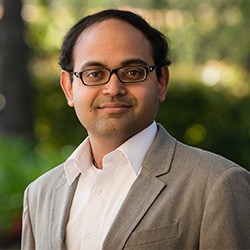
Pennsylvania is one of the largest producers of natural gas in the United States. The shale boom of the past decade had many benefits – it reduced air pollution, created jobs, and provided local economic growth. More importantly, it has also made the U.S. a net importer of oil and gas resources – a feat that was considered impossible just 10 years ago. In this talk, Dr. Ravikumar discussed how Pennsylvania can harness advances in new technological innovation to make the natural gas industry more sustainable, while creating hundreds of local, high-paying jobs.
Despite this success of natural gas development in recent years, it has also brought its own challenges, namely -methane emissions. Methane is the major component of natural gas that heats our homes and cooks our food. However, leaks in the natural gas supply chain often releases methane directly into our atmosphere. This is a problem. Methane is a greenhouse gas that is far more powerful than carbon dioxide and contributes to climate change. Near the ground, it can lead to ozone formation and local air pollution. The challenge, therefore, to Pennsylvania and the U.S., is to strike a balance between effective environmental regulations and economic development.
Fortunately, during the last five years tremendous innovation has occurred in the methane space. Many start-up companies in the U.S. are developing methane leak detection sensors that are faster, cheaper, and more effective than existing solutions. These new sensors, often found on mobile platforms such as drones, trucks, planes, and even satellites, can enable the sustainable development of the natural gas industry. In this lecture, we will explore this technological revolution, understand its impact on the energy industry, and discuss what it means to Pennsylvania.
Dr. Arvind Ravikumar at the time of this presentation was an Assistant Professor in Energy Engineering at Harrisburg University and a non-resident fellow at the Payne Institute at the Colorado School of Mines. He is now a Research Associate Professor at the Hildebrand Department of Petroleum and Geosystems Engineering at the University of Texas at Austin. His work focuses on developing engineering-based solutions to inform energy and environmental policy in the road to a global clean energy transition. Most recently, his research has sought to understand and reduce methane emissions from the North American oil and gas industry through a combination of field work, modeling, and policy analysis. His other research interests include global trade in liquefied natural gas and the clean energy future in developing nations. He regularly consults with non-governmental organizations, and state and national regulatory agencies energy and environmental policy. Prior to joining Harrisburg, Ravikumar was a post-doctoral fellow at Stanford University and obtained his Ph.D. in Electrical Engineering from Princeton University in 2015.
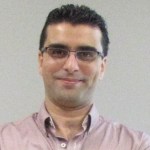
Dr. Abdellatif discussed how Harrisburg University is enhancing the end-user exposure and market impact of the FEAST tool. This project is part of HU’s efforts to comprehensively advance the business case for methane emission reduction from energy production across the full value chain – from production through distribution.
Dr. Iheb Abdellatif is an assistant professor at Harrisburg University of Science and Technology (HU) – ISEM (Information Systems Engineering and Management) program. He holds Ph.D. and Master Degrees in Information Technologies and Operations Management. He has more than 10 years of industry experience in information systems development, software engineering, data warehouses, business intelligence, business process analysis, and operations management. At HU, he teaches graduate courses in Information and Communication Technologies, Enterprise Architectures, and Aligning Business and IT strategies. His research interests include Internet of Things technologies, Enterprise Architectures, Information systems, supply chain management and operations management.
Abdellatif’s 10+ years of experience includes senior management and consulting/advisory positions with industries around the globe. As an IT Director at Bluesail Solutions, he supervised large-scale projects in IT planning, enterprise architectures and integration, Enterprise Resource Planning (ERP), geographic information, and supply chain management systems. He is co-founder of a startup that specializes in Radio Frequency Identification (RFID) and IoT technologies. He is an active participant on the standardization committees of the IEEE Computer Society and has published several papers on IoT, Service Oriented Architectures (SOA), Business Process Control & Auditing, and RFID technologies.
Dr. Odubo presented his work on the technical and economic/financial issues that impact the commercial viability and effectiveness of microgrid systems in Nigeria. He also will discuss the viability of existing and future microgrid projects in the country, including practical steps that the Nigerian Electricity Regulatory Commission, developers, and other stakeholders can take to improve the climate for investment and development of mini-grids. Dr. Umar will present a model which displays how the latest digital innovations and computer-aided planning can be deployed to address the issues and foster a bottom-up, community-based approach to addressing energy policy and sustainable development in developing and least developed countries.
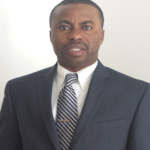 Festus Odubo, PhD is a professional and a specialist with over 15 years experience in energy, environmental, water and wastewater issues including oil and gas and homeland security. Dr. Odubo is a subject matter expert in energy, environmental policies, water and wastewater regulation, especially in areas of compliance with local, state, and federal requirements and the review of applications and security plans (physical, cyber, emergency response and business continuity). He also has experience in the oil and gas sector having worked in the Production and Drilling sectors of ChevronTexaco and Schlumberger Oilfield Services, respectively.
Festus Odubo, PhD is a professional and a specialist with over 15 years experience in energy, environmental, water and wastewater issues including oil and gas and homeland security. Dr. Odubo is a subject matter expert in energy, environmental policies, water and wastewater regulation, especially in areas of compliance with local, state, and federal requirements and the review of applications and security plans (physical, cyber, emergency response and business continuity). He also has experience in the oil and gas sector having worked in the Production and Drilling sectors of ChevronTexaco and Schlumberger Oilfield Services, respectively.
Dr. Odubo has a PhD in Public Policy and Administration with a concentration in Homeland Security Policy & Coordination. He also holds a Master of Science degree in Environmental Pollution & Control and a Bachelor of Science degree in Industrial Safety Environmental Engineering Technology.
Dr. Odubo is currently employed as a Public Utility/Energy Advisor/ Rate Case Review Specialist and is also an Agency Representative in the Commonwealth of Pennsylvania’s Public Utility Commission (PA PUC). He is a member of the National Association of Regulatory Utility Commissioners’ (NARUC) Staff Subcommittee on Critical Infrastructure, NARUC Staff Subcommittee on Water, Cybersecurity Task Force of the PA PUC, PA Regional Counter-Terrorism Task Force, International Association of Emergency Managers, Pennsylvania Exercise Planning Team, Security Emergency Preparedness Committee, Engineers Society of Pennsylvania, Pennsylvania Emergency Management Council, the American Society for Public Administration, Golden Key International Honor Society, and Pi Alpha Alpha.
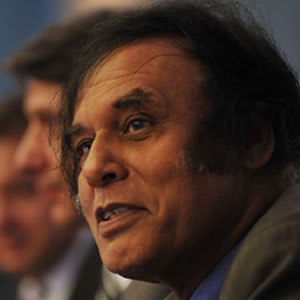 Dr. Amjad Umar is the Director and Professor of ISEM (Information Systems Engineering and Management) program at Harrisburg University of Science and Technology, and an Adjunct Professor of Systems & Telecommunications at the University of Pennsylvania. He is also Chief Architect of the United Nations Partnership on Small Islands and a Fulbright Senior Specialist on ICT. At HU, Dr. Umar teaches graduate level courses in strategic planning of digital enterprises, enterprise architecture and integration of smart enterprises, information security, and strategic intelligence. He also supervises graduate research and practical projects in ICT4D – his main area of interest.
Dr. Amjad Umar is the Director and Professor of ISEM (Information Systems Engineering and Management) program at Harrisburg University of Science and Technology, and an Adjunct Professor of Systems & Telecommunications at the University of Pennsylvania. He is also Chief Architect of the United Nations Partnership on Small Islands and a Fulbright Senior Specialist on ICT. At HU, Dr. Umar teaches graduate level courses in strategic planning of digital enterprises, enterprise architecture and integration of smart enterprises, information security, and strategic intelligence. He also supervises graduate research and practical projects in ICT4D – his main area of interest.
As Chief Architect of the United Nations ICT4SIDS (ICT for Small Island & Developing States) Partnership, he is currently focusing on smart hubs and smart towns for the Small Island & Developing States. Due to his assignments with three UN initiatives as Chief Architect and Initiative Director since 2007, he has worked with more than 30 developing countries. Dr. Umar has 20+ years of experience that includes senior management and consulting/advisory positions with governments and industries around the globe. As a Director of Research at Bellcore (part of the Bell Labs system) for 10 years, he supervised large-scale projects in IT planning, enterprise architectures and integration, mobile computing, information security, and collaborative systems.
Dr. Umar is also the Founder/CEO of a startup that specializes in Computer Aided Planning of ICT-based Systems for the underserved populations. He has consulted with global telecom organizations, US Department of Navy, US Army Research Labs, Frost and Sullivan (England), Toyota Corp., Society of Manufacturing Engineers, healthcare organizations, professional services organizations, and academic institutions in England, Singapore, China, Italy, New Zealand, South Africa, Argentina, Canada and more than 30 developing countries. He has written eight books and more than 60 research papers in his areas of specialization.
April 23, 2019 – “The New Economics of Solar Power”
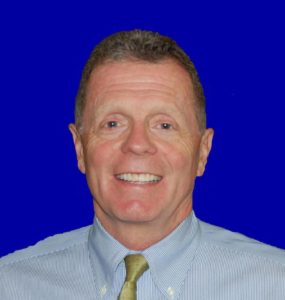
R. Brent Alderfer has a 20-year track record developing renewable energy projects with a company committed to climate change solutions in the power industry.
With 70 to 80% cost reductions since 2010, solar photovoltaic electricity technology has transformed the economics of power generation. Efficiency improvements in solar cell performance, manufacturing processes and field installation, combined with economies of scale at each stage, have ushered in the era of competitive solar power. Alderfer discussed “The New Economics of Solar Power.”
Now the fastest growing source of electric generation capacity globally, solar power has climbed quickly from fractional percentages of power a few years back to grid-scale development providing real-world data for the smooth integration and potential of this fuel-free resource. The results in the mid-Atlantic are surprisingly favorable for both reliability and cost of power for consumers small and large. Rounding out the economic picture are impressive statistics on private capital investment, rural economic development, farmer income, tax revenues and jobs that come from building out the new solar technology.
April 25, 2019 – The State of Climate Science, and What It Means
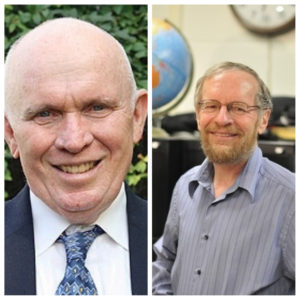 Dr. Alley reviewed the scientific conclusions of the Intergovernmental Panel on Climate Change (IPCC) and discuss sustainable energy systems during his lecture. We enjoy the good we get from our use of energy, now mostly from fossil fuels. But, the carbon dioxide from the use of fossil fuels changes the climate based on unavoidable physics, and the climate changes they are causing will become increasingly damaging if we continue to raise carbon dioxide levels in the atmosphere. Strong scholarship shows that if we make wise use of our knowledge on risks and opportunities, we can move toward a sustainable energy system that supports a larger economy with more jobs and greater national security in a cleaner environment with improved health more consistent with the Golden Rule. Today’s students are the first generation in history who know they can do this.
Dr. Alley reviewed the scientific conclusions of the Intergovernmental Panel on Climate Change (IPCC) and discuss sustainable energy systems during his lecture. We enjoy the good we get from our use of energy, now mostly from fossil fuels. But, the carbon dioxide from the use of fossil fuels changes the climate based on unavoidable physics, and the climate changes they are causing will become increasingly damaging if we continue to raise carbon dioxide levels in the atmosphere. Strong scholarship shows that if we make wise use of our knowledge on risks and opportunities, we can move toward a sustainable energy system that supports a larger economy with more jobs and greater national security in a cleaner environment with improved health more consistent with the Golden Rule. Today’s students are the first generation in history who know they can do this.
Brown discussed issues citizens around the world urgently need to understand about climate change in light of the most recent climate change science. They are:
- The enormous magnitude of GHG emissions reductions needed to prevent catastrophic warming.
- The speed of GHG emissions reductions needed to prevent catastrophic warming.
- No nation may either legally or morally use national self-interest alone as justification for their failure to fully meet their obligation under the UNFCCC.
- No nation may either legally or morally use scientific uncertainty as justification for their failure to fully meet their obligations under the UNFCCC.
- Developed countries must legally, morally, and practically reduce their GHG emissions more aggressively than developing countries.
- Developed countries must legally, morally, and practically help finance mitigation and adaptation programs in poor developing countries.
- The need for broad understanding among civil society of these issues follows from several recent scientific reports on climate change that lead to the conclusion that the international community is facing an urgent existential crisis that threatens life on earth.
About the Center for E3: Harrisburg University’s Center for Environment, Energy, and Economy (E3) was created in August 2017 to connect HU’s faculty, curriculum, and students to change-makers who work to combine environmental protection and sustainability practices with economic development. The Center partners with and solves problems for businesses and governmental entities, focusing on IT, data, and systems-based projects that can support evidence-based decision-making systems, policy development, and practice.
About Harrisburg University: Accredited by the Middle States Commission on Higher Education, Harrisburg University is a private non-profit university offering bachelor and graduate degree programs in science, technology, and math fields to a diverse student body. For more information on the University’s affordable demand-driven undergraduate and graduate programs, call 717.901.5146 or email, Connect@HarrisburgU.edu.